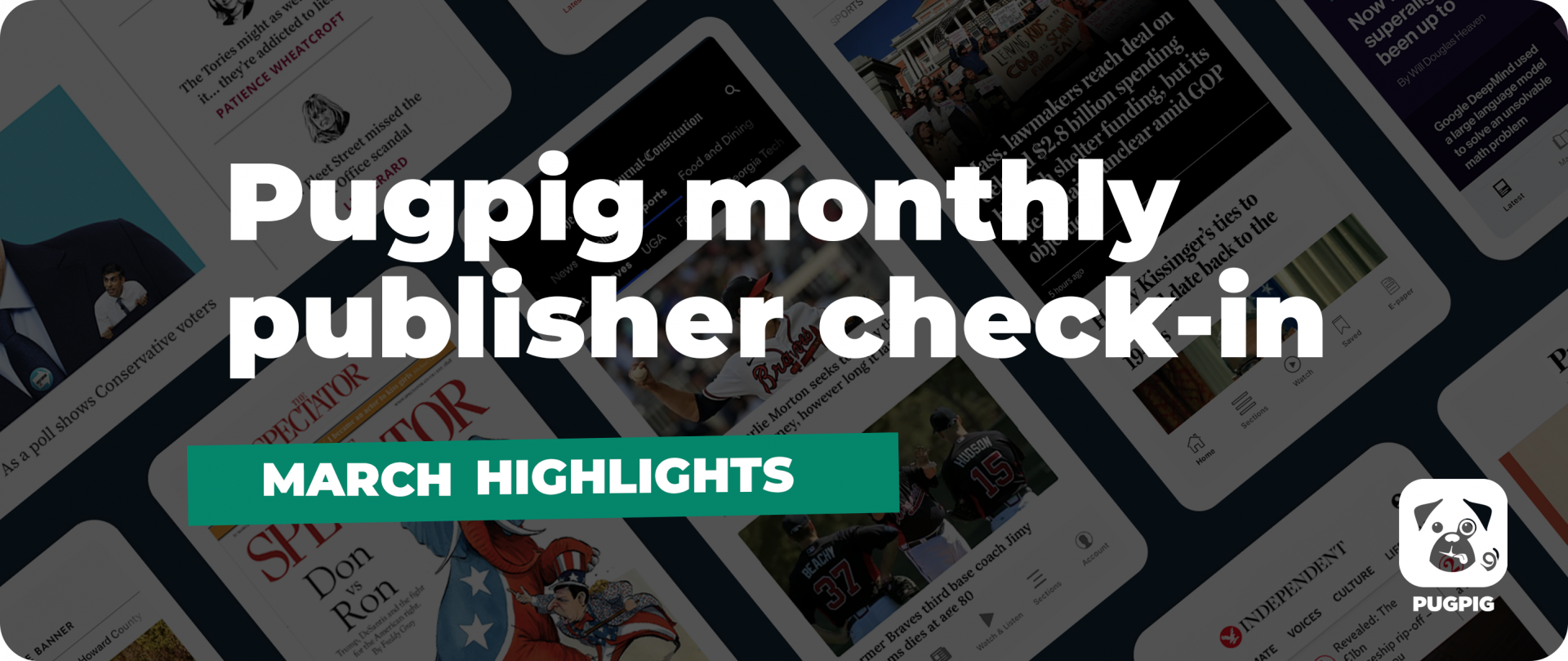
News
News
Pugpig’s Jonny Kaldor takes a stroll around Central Park with Ariscielle Novicio, a News Corp colleague from many years ago and now CTO at New York Post.
7th December 2023
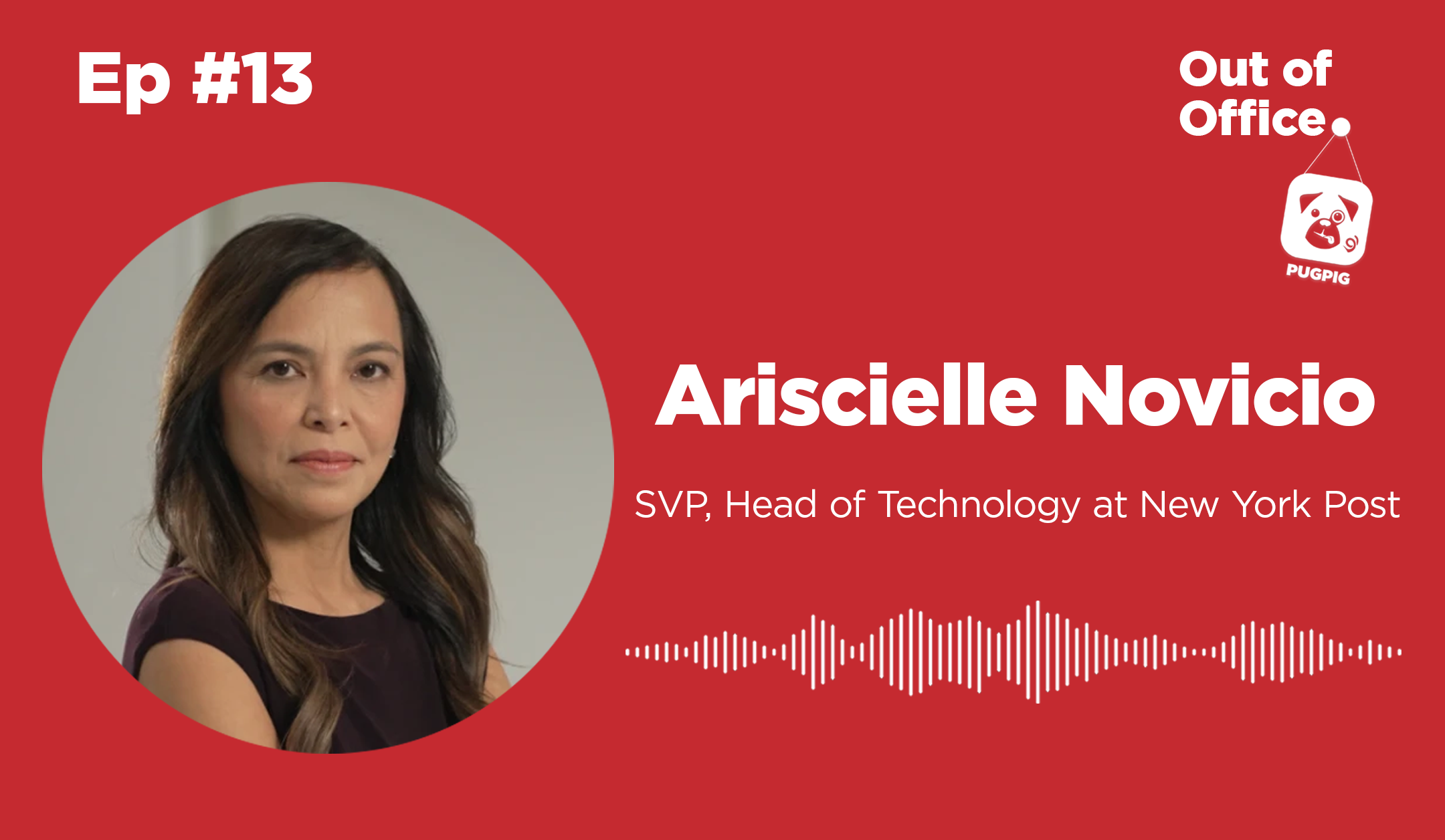
In this episode, Pugpig CEO and Co-Founder, Jonny Kaldor takes a stroll around Central Park with Ariscielle Novicio, a News Corp colleague from many years ago and now CTO at New York Post. They reminisce about two sister projects they worked on back in 2010 that were both designed to change the face of news media. While Jonny’s didn’t see the light of day, Ariscielle’s, The Daily, did make it, and for some time as a very high production newspaper for the iPad.
They talk quite a lot about those projects, how they were pulled together, and what ultimately ended them. They also had a completely unplanned and highly coincidental bump in with Paul Mellor, who used to be CTO at the Wall Street Journal. So bizarrely, there was the New York Post, the Journal, and the Times of London together at the same time, in the same park.
It’s a really interesting chat with Ariscielle and they covered all sorts of different topics, from her experience running technology at one of the biggest newspapers in the US to back in the times we were doing crazy stuff on the iPad, and a whole lot of other things. Here’s how the chat went…
Ariscielle: All right. Here we are, we’re in Central Park.
Jonny: We are, yeah – it’s wonderful!
Ariscielle: It is! It’s also a really good, not so hot, not so not so fall-y kind of day, which is really warm for three days before November. It’s 74 degrees today, which I think is actually really nice. There’s part of me that feels like there should be a little more chill in the air – I’m ready to change my fashion!
Jonny: I like it like this – it’s already chilly in London. And we’re here because….
Ariscielle: I don’t know if a lot of people know this about me, but I’m very into nature. This is a good mix of where I work – which is also my happy place – and being in nature at the same time. The office is a 10/15 minute walk away – it’s good because you’re working, you’re really into your job, and then you walk 10 minutes and you’re here in Central Park.
Jonny: Yeah, you can feel like you’re somewhere else. Okay, so we’re not here to talk about Central Park. We’re here to talk about you. We should start with where you are right now, for the uninitiated.
Ariscielle: I’m the CTO at the New York Post. It’s one of those jobs I’ve always wanted – it’s so cool to say that out loud. I’m still like, oh, that’s me! I think about it all the time.
Jonny: So talk a little bit about what you do day-to-day and what you’re focusing on right now.
Ariscielle: The focus is actually a lot right now. This is the one time where I love work, all the challenges, and how much the industry changes. Not just tech, but also news media and tech, and how much that forms what I need to work on for any given year, month, or even day. I really like how dynamic that can be.
But the focus right now is – in a good way – many, many things. It’s probably the first time in my entire career, in my entire lifetime, where I’m like okay, take a breath and sit back for a little bit. Think through one year and how to prioritise all the super important things to find the one important thing that I need to focus myself and my team on.
So everybody talks about cookie deprecation, right? I’m thinking what are we going to do there? So building out the data, architecture and also building out the team’s skill set to respond to that super important business need.
Because when cookies are deprecated, that also means we don’t know so much about our users. And that could impact ad revenue. So all of a sudden we’re then working with the advertising team, and I’m not a salesperson – that’s one of those jobs where I know I am not going to be good at that job ever. That’s just not my personality or what my brain likes to do. But I’m now having to tell myself that, to enable the business, I’m gonna need to understand and empathise with them on how cookie deprecation is going to impact them, and become that tech person that understands ad tech, so that I can be of service.
So that’s one of the super important things, plus privacy regulations. And then also, I inherited the data science team back in February. And for me, being the leader of data science people, my leadership style needed to change with this new group.
This is also the time where it’s the closest I need to be to the business because now I’m thinking through pageviews, traffic, growing audience, delivering insights, delivering with data science and tech and how we could better inform the business to monetise. Again, that’s another shift in the way I need to think and become a partner to my executives.
Ariscielle: The tech team? The Post is not a huge organisation – I have about 20 full time and we have permanent consultants that have been with the team for a good three to four years now – that’s maybe like another 20. We also have the extended News Corp team. I don’t know that we had shared services when you were here, but now it’s fully baked, so that’s also an extension of every CTO’s team. That’s worked out really well in getting things to market or just having a different team to do a peer review on really hard topics, and really hard tech.
Jonny: This might be kind of an old question, but I’m still interested. When we started putting paywalls up and – at least in the UK – it was inevitable that The Times and The Sunday Times did very well with that model, while The Sun really struggled and they then obviously shifted and went for scale and ad revenue, and so on. With The Post, I suspect it’s similar, but what can you talk about the revenue mix for The Post, at least digitally?
Ariscielle: We have a subscription product that we launched two and a half, maybe three years ago now, which is our Sports Plus product. We were looking at our sports section and what we can do there, but that’s still a very small piece of our business.
We have also, as you mentioned, the advertising model which is core to how we make our money. Plus we also have some really good leadership now. I’ve been with the organisation for a really long time, and our CEO – and the leadership as a whole – has, in the last few years, really been able to diversify the business.
So we have a thriving affiliate vertical at The Post, and we have a growing video business which is still supported by ads to this day. I think that’s it for now, but we’re always looking at new ways to monetise.
I’ve been there for 27 years now – oh my gosh! I’ve been there for as long as I’ve had a child! So I’ve seen it change so much. I think I mentioned it earlier, it’s never been so challenging, but so good. Like, my brain hurts! And from a tech perspective, I love, love, love the fact that I’m having to solve – with a team that I really, really like – problems that I don’t even know the answer to. But just to be part of it. It’s pretty amazing.
Jonny: I want to talk about, I mean we can’t not talk about 2010. You and I were working on completely different and yet deeply related, and somewhat similar projects at the same time. You were on The Daily, I was on Alessia. Yours lived, ours never saw the light of day. I think it’d be cool to hear what The Daily was, as well as just a little bit of our story because it’s kind of cool. You managed to launch something which was pretty significant at the time.
Ariscielle: Yeah, that’s funny because it feels like yesterday, but also feels like so long ago. That’s probably one of my great loves. In 2010, I remember clear as day, my boss at the time, Jesse Angelo came down and said ‘hey, we need to build a news publication on the iPad. And at the time, we were already building the New York Post.
So I thought, okay, he means make it available in the store nationally, right? That’s what I was thinking. Later on that day he said we’re going to have a meeting with the Apple folks and then we need to hire about 200-250 people, here’s the budget we’re going to have, and then we’re going to set up shop. We’re gonna set ourselves up on the 26th floor and we’re gonna hire the best of the best. I said okay, (again, so clueless because this conversation was happening so quickly) national New York Post, right?
He’s like, no – a completely different product, completely different company. We’re going to need to build a state of the art CMS, we’re going to work directly with the Apple engineers. They’re going to fly over, we’re gonna go see them and we’re gonna hire a design team. We’re going to get some engineers that can build a CMS from scratch. Something that’s completely different than what’s already out in the market.
Jonny: This was Brian Alvey, right?
Ariscielle: So a few days later, I put a notice out, essentially cold calling companies asking if I could pitch them this work that I didn’t even know anything about and I couldn’t define. I don’t even know who I called at the time but all I remember is Brian Alvey answered my call, and he said he’d been trying to pitch our leadership for months on some other platform he had
before he owned Crowd Fusion. So for the CMS, we lasted until December of 2012.
Jonny: That’s pretty cool. So you took about a year to launch. Is that right?
Ariscielle: That was about February 2011 – we kicked off in August – the hiring days were just amazing. We had this 26th floor office that had no chairs or no desks, so to come from a background of just pure tech to then starting up an organisation from scratch and colluding, figuring out the furniture, figuring out the design and participating in hiring the people who would be higher up than me. It was super, super fun. Apart from telling and working with Brian Alvey that they were exclusive to us until TBD, we did the same thing for all the techs.
So, there was another company called Crowd Fusion who did the front end and app development work. They were, at the time, already a successful consulting business, and they were the only ones who answered our call and said they could do it – we could do it. Their founder is still a really good friend of mine. We don’t talk as much, but every time we pick up the phone there’s no time lost.
So I think that’s what I got out of all these really, really tough projects. It’s nice to see that mostly everyone that worked for The Daily has found success somewhere else. To see a lot of them working for Apple now or just still really, really excited about what they learned at The Daily and what they’re doing now, and how that informs who they are today. I think that’s super cool, even how that informs me, just as somebody who continues to lead tech people in tech initiatives.
Jonny: I think, for news at least, that period was a little bit of a renaissance, right? Because the decade preceding that, to try and hire and to try and get technology people excited about newspapers was pretty tough, right? I mean, News UK for example, you know, grey offices in Wapping pushing out newspapers that were increasingly seen as, from a tech standpoint, not so interesting.
We had a real hiring problem in those early years, but then doing these projects like Alessia and The Daily, putting the paywall in front of The Times – all these projects suddenly made media kind of sexy again, from a tech perspective.
Ariscielle: You’re right, we were like the cool kids. And the biggest challenge I really had is maintaining my cool, because now you have these really cool and, in their own right, very successful individuals coming to work for us. The bar was high – in retaining them or even getting them to work for us. This was also at a time where every iOS developer cost so much money. We had almost all coming for an interview asking for ten times what we normally would offer and candidates coming in wanting to have a founder title. Pretty wild. Exciting, though, I wanted to be one of them!
Jonny: But also, a lot of people on our team were really great coders and, frankly, all the really smart ones had to do was sit down for a few weeks and iOS became doable relatively quickly. There was somewhat of the ‘black art’ of app development, like it’s really hard, you gotta have the right people, but actually really good developers picked it up quite quickly.
Ariscielle: Yes that’s true, but for us, our Creative Director was really pushing the envelope of what tech can do and what even the devices can do.
Jonny: Did you do Android as well or was it just iPad? We all did the Blackberry, right? Honestly, we spent too much time on the Blackberry – we had a little room with those sorts of devices with wire sticking out, like half finished BlackBerry devices.
Ariscielle: Oh my god, we did all of it.
Jonny: Do you remember actually, before we started in 2009 we were looking at e-ink liquid paper as the medium that we were going to use as the basis for this and then we were like, hang on this is crazy. I mean, it could just about push out a page, but anything beyond that is beyond its ability. So we had all these sort of Qualcomm devices which were like some halfway house between e-ink and LCD.
There was a moment in time in 2009 – so it was about eight months before the iPad launched – where I was meeting Samsung, LG, Sanyo, Sony, probably five or six different display manufacturers speccing out a tablet device which we were then going to give as part of the Alessia subscription. We went as far as getting quotes and drawing up heads of terms with these businesses. and then around October and that the iPad was mooted that it was coming. It was like, thank God for that. We’re not gonna have to build our own device. In a way, that’s the beauty of News Corp – there’s enough money to actually do really, really cool stuff and not worry too much about how much it’s going to cost. I look at our customers today and very few publishers have that luxury.
Ariscielle: Well, I don’t know that we don’t worry about it, but certainly we do value innovation. People always ask me ‘why have you been there so long, why have you not gone somewhere else?’ I’ve never been bored here, I’ve never had the same job or the same set of responsibilities for more than a year.
Ariscielle: I have a few but I have one who was the New York Post’s publisher for a good number of years. His name is Martin Singerman, he was great – I didn’t really think he noticed me until one day back in 2006.
I left the New York Post and moved to California to work for 20th Century Fox. I worked at the Nakatomi building and security called me and said there’s a really well dressed gentleman looking for you at reception.
So I go down, and it’s Mr. Singerman. I was so embarrassed and so shocked, because he was like God to me when I was younger. He was a publisher when I started when I was about 24.
I was around 30 at the time and never really spoke to him with the exception of seeing him in the hallway and when I’d be helping him with tech questions. But we’d be in and out of his office, that was it. He said, I was looking for you the other day. I needed some help when they told me that you left the organisation and you moved. He said, I live here part of the time. My wife and I are staying at the hotel next door if you and your family want to join us for lunch one day.
So that was around 2007 that he was my mentor. Kind of like my life/work/leadership mentor. I never called him and said hey what should I do about this thing at work? It wasn’t so much about that. I always worried about politics at work and I always felt like people seemed to change the more successful they got. So I always thought about whether I wanted to be that person, and those are kind of the things I would talk to him about.
He said, well aren’t you a senior director right now? Did you have to deal with any politics or change your style to become a senior director? When I said no, he said keep doing what you’re doing. If nobody takes you for who you are, then you don’t want that job anyway, and that really stuck with me. The other thing he taught me was to leave your baggage at the door. Because when you’re a leader and you walk in and you’re frowning and it might not be about your staff, they think it’s about that. So he’s like, check yourself.
Jonny: It’s a funny one, because I think news can be so political. And yet, there were some shining lights, who, as you say, managed to just completely avoid all of that, and still do very well with plenty of machinations in the background.
Ariscielle: Maybe I’m just a little more sheltered because I’ve been with the same organisation for a really long time, I don’t really feel that at The Post.
Jonny: I also think maybe we were lucky – I can’t say this now – but back in the day being in delivery roles, because when you’re delivering, it’s harder for politics to get in the way. I mean, you just do your job and you either do it well or you don’t.
Ariscielle: And then you move up, and you get a little more exposed. Then you’re like, wait a second, this looks nothing like the layer I was in the last time. I feel like I’m comfortable with it now.
Jonny: Right. It’s interesting what you said before, that you have lots of friends from your time, not only The Daily, but your time at News Corp. Again, I think I have a similar sort of experience where it’s almost like you’re in the trenches. It’s this battle through adversity sometimes where everything’s being thrown at you. That’s the best way to make firm friends with people, isn’t it when you’re having things thrown at you constantly.
Ariscielle: I agree. We experienced Hurricane Sandy happen in 2012. That was one of those times where I felt like the people at work really have my back. It was me and my two children living in Monmouth County in New Jersey, and our home got hit – not badly, but the area was pretty damaged. At my house, things were flying out like my garage had been banged open by the winds and my fence was all out of sorts and there’s no food, there’s no gas, it was just a mess.
The Daily and News Corp said hey, you know what? Why don’t you and your kids stay at the Crowne Palace, which is right on 42nd. They had a delivery truck sent to my house to help me clean up – I thought that was pretty amazing.
Jonny: That reminds me of something else back in the day, you must have had the same, we had these disaster recovery sites. In the UK, we had out in Peterborough, complete replicas of both newsrooms completely empty but full of desktop machines all ready to go. The big DR plan should a bomb go off in London, that was an immense amount of cost in order to put that infrastructure together and then test it every year and all that sort of stuff.
Ariscielle: That was kind of fun, though.
Jonny: It was fun. But how redundant it was, right. I mean, like, just what a complete waste of time, actually.
Ariscielle: And then you’d have to go there and test it out and simulate product right from that location.
Jonny: But I don’t think there’s much back then in terms of pure underlying tech infrastructure that we didn’t have, that we’ve got today apart from speeds are faster, but you could have run a newsroom from your bedroom, even back then if you really put your mind to it. It was just such an alien concept. And yet, when Covid hit, we did it overnight.
Ariscielle: I didn’t have a T1 at home. You know, I wasn’t dialling in with my modem! Can you believe that a T1 powered the entire newsroom?
Jonny: Well, also there were data rooms in the office in Wapping with all of this proprietary hardware. Funnily enough, Alessia was the first project we ever did with no hardware whatsoever. There was no server room because we didn’t have any servers. It was fantastic. We were talking – this will make Jon Marks smile – about using the MySpace data centre, because it was just sitting there unused.
This is what happened back in the day, you must have had the same, when you ran a project in News Corp, and there’s a whole load of stuff lying around, it just gets thrown at you. So Dow Jones was throwing Mosaic at us as a subscriptions platform and MySpace was throwing the data centre at us for their servers. It was like, oh my gosh, can’t we just start from scratch?
Jonny: Okay, so outlook. What are you excited about? You talked a little bit about some of the projects you’re working on. I’m trying to avoid talking about AI, but…
Ariscielle: I don’t know that you can avoid it. It’s gonna be plumbing. I’m excited about it! I just need it to have a different name at this point. But I’m excited about really knowing what it can do and getting into this sexier space with AI, because right now, a lot of our initiatives are we need it, then time to market, right. So we need some newsroom efficiencies, we’re focused on that. But to me, that’s sort of not any different than any other initiative I’ve had. It’s just a different toolkit. So I really want to see more powerful use of AI, which I haven’t figured out what that is yet.
Whenever people talk about AI, machine learning, generative AI, cognitive AI, I’m like okay, like that’s been around, so I’m looking for the next level. Also, I’m really impatient with my own knowledge. So I also just need some quiet time to figure out what that means for me, as somebody who needs to enable new things for the business. I just want to know something different than what I know today. And I don’t know that I know that yet. Does that make sense?
I think that’s the thing I’m most excited about, to answer your question more specifically. It’ss been a while since something new has come out.
Jonny: Yes, particularly in terms of consumption, if you think about the phone and how that’s completely changed consumption… it doesn’t feel like there’s another one of those around the corner.
Ariscielle: Yeah, I just really am dying to get my hands on something really groundbreaking.
Jonny: To what extent is News Corp getting involved in the copyright conversations around generative AI and training datasets and that sort of stuff? What I’m hearing more is that news organisations are less and less concerned about it, because without the fundamental content that’s being generated by these companies, generative AI is kind of pointless. So to what extent is News Corp getting involved in those conversations more at a structural level/copyright level?
Ariscielle: I think we’re on the same boat, and this is just my point of view. From all the activities that I’ve been a part of, it’s like, what’s the right move? Just like I said earlier, it’s not going to go away, it’s going to be plumbing. Is it going to replace the way we understand and use search today, is it going to be the new way people access data? So do we want credit for our content? Do we want to be the trusted source for that data? Of course, but I think for right now it’s still a conversation.
Jonny: Does it up the ante on being the destination and maintaining that direct relationship? Or do you accept that that’s going to be difficult to hold on to?
Ariscielle: I don’t know that any publisher is ever going to accept that.
Jonny: Haha, good!
Ariscielle: Losing that direct relationship with a consumer is counter to every project I’m working on right now, because we’re thinking about first party data, cookie deprecation and how we understand our users better so that we can speak to them and give them experiences that make them come back more and give us one more interaction. So we will always want, from my perspective, the relationship with the user.
Jonny: Yes, that’s good to hear.
Jonny: So with Rupert and his famous, not quite retiring, but kind of half retiring? Do you still see him around in the building?
Ariscielle: I’ve seen him a few times, not in the recent months. But that could be because I come in on Monday and Friday. Remote work’s made it a little hard to see people.
Jonny: Oh, yeah, of course. How does that feel right now? How many days does the team tend to come in right now?
Ariscielle: Three days a week, and they can choose the days. I like coming into the office. I like seeing my team. I’m needing to adjust my leadership style because I’m really hands on and I like to talk to my people, and people in the office.I feel like you get really good work done if you at least have some level of personal interaction with the people that you work with.
Jonny: I mean, are you recruiting super young, hungry graduates? Do you recruit people who don’t have degrees into journalism? What’s the policy of the paper to get fresh ideas and fresh blood?
Ariscielle: I’m gonna talk about tech and then what I observe. We’re looking for really hungry, talented tech people and journalists. Degree or no degree, at least for me, doesn’t matter.
Jonny: So where do you find them? Where are you fishing?
Ariscielle: That actually gets harder, because I think the more common, more traditional ways of just posting it on our job site doesn’t really do the matching correctly. It puts a lot of work on me and on the recruitment team to figure out who’s right – the resume no longer tells you the story.
Really, it’s having to talk to a lot of candidates before you find the right one. I don’t know if it’s age or I just got smarter, but I feel like the conversation is also a lot different nowadays. Back in the day, I’d have questions ready and I’d say just talk to me about your projects, your experience.
Now, I’m like yes fine, we’ll talk about the projects and the skillset, but that’s a test. Most of the interview at this point is feeling out more of the drive, the culture fit, right? The chemistry with the person with the team, so it’s more that. I think I found the most success doing that – I have that one person I hired, who maybe didn’t check all the boxes, but killed it with culture, chemistry, drive and I have not regretted a day.
Jonny: By the way, I should say where we are back where we started and they’re setting up the New York City Marathon, which is super exciting.
Ariscielle: That’s my goal one day!
Jonny: You have to do it!
Ariscielle: 26 miles….I think it’s more like getting the right mindset to do it.
Jonny: Yeah, you should do it!
So there you go. That’s it. A big thanks to Ariscielle for all of her time, and great stories and chats, and thanks to you for listening yet again. You managed to make it to the end. If you enjoyed it, please do tell people about the podcast. Please do give me any feedback at all that you’ve got. And hopefully see you next time.

News
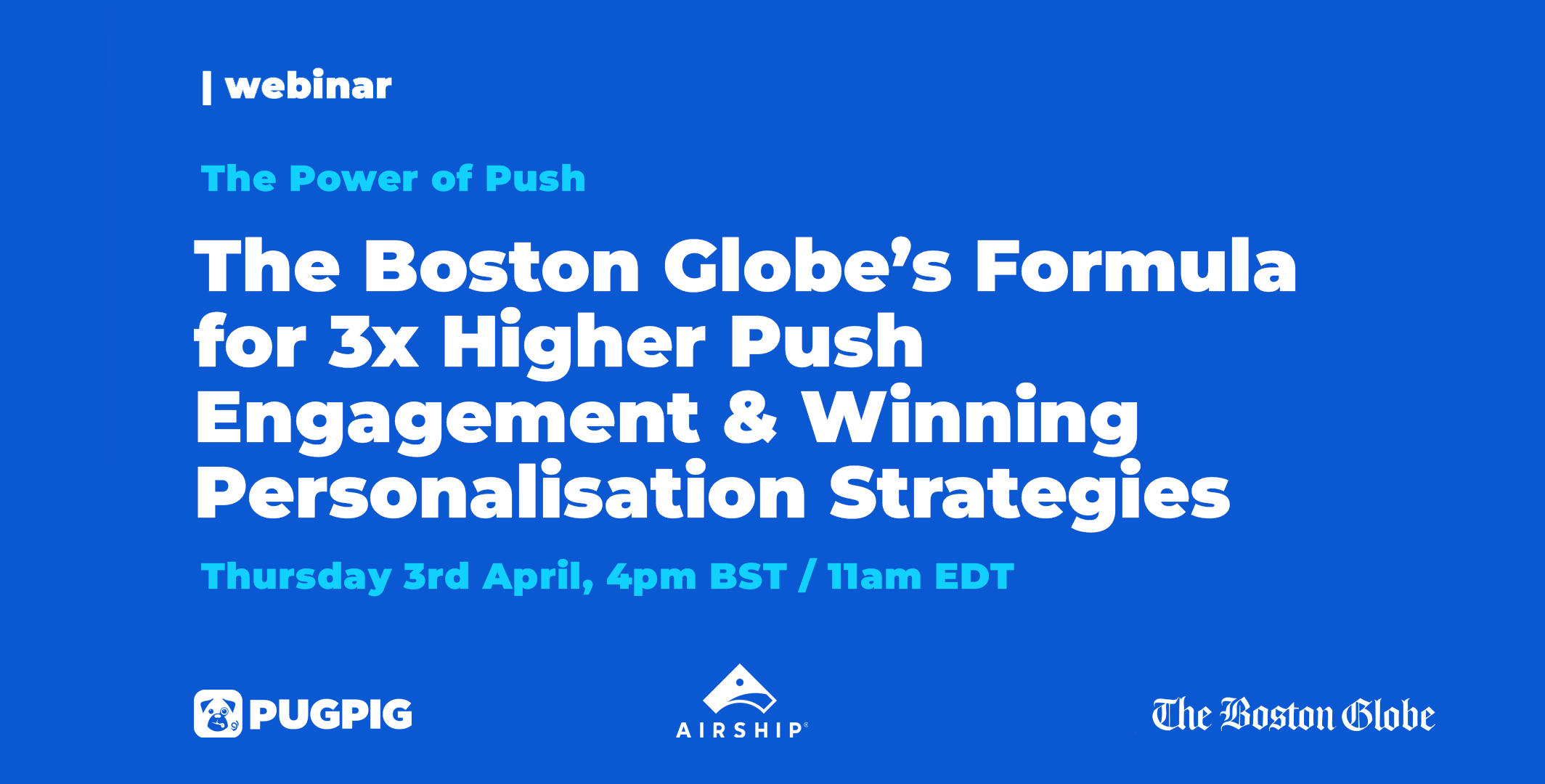
News
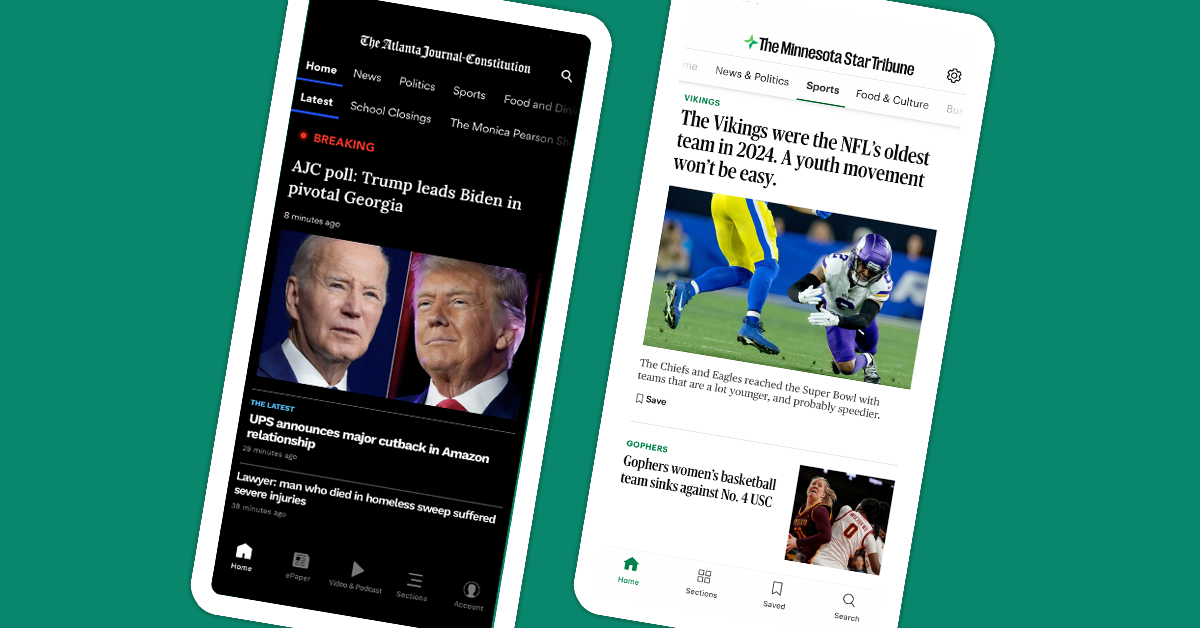
News
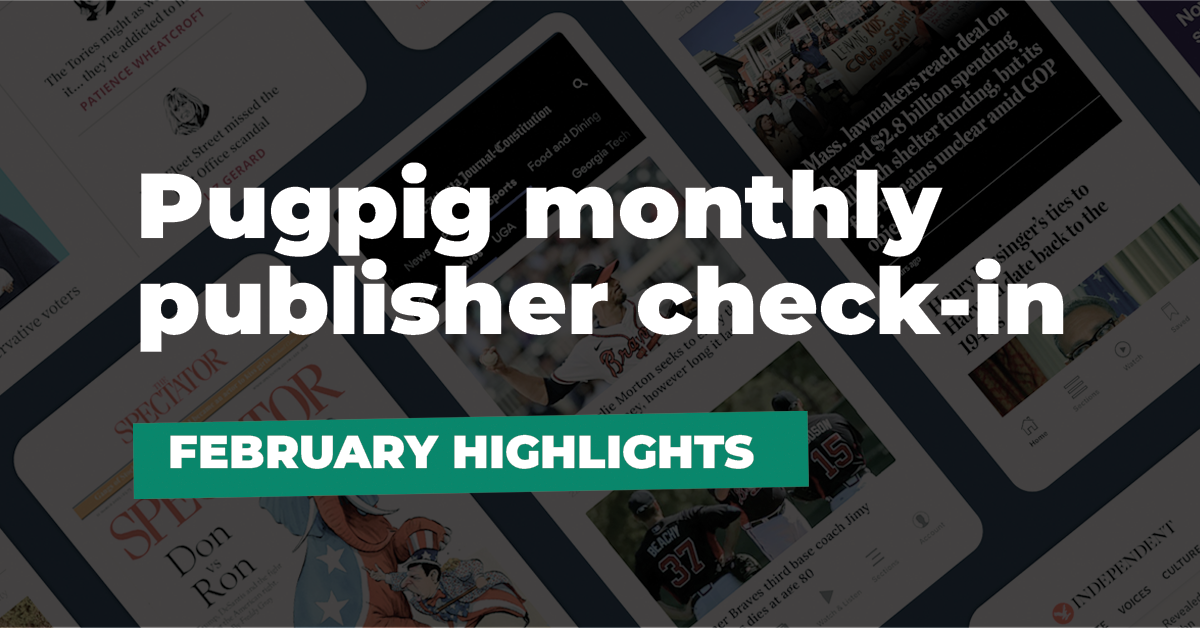
News
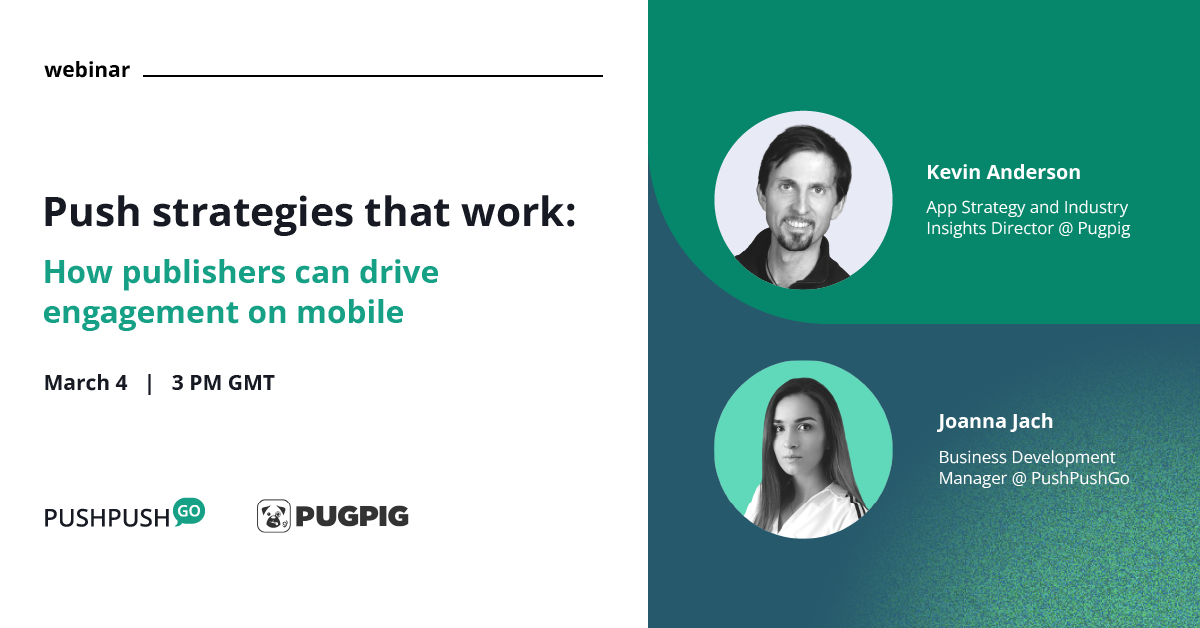
News